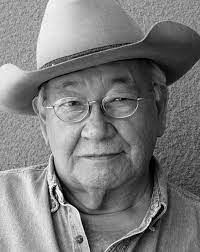
Notes on my return from spring break:
- Time flies even when you don’t (file under “fear of flying”).
- Which is to say, a week off traveling someplace will always disappear faster than a week off at home.
- Reading on a train is conducive to sleeping.
- After training south on Amtrak’s “Quiet Car” and failing to nab a seat on the “Quiet Car” heading back north, I now fully appreciate how and why the “Quiet Car” was invented.
- Which begs the question: Why is there only one “Quiet Car”?
- Good news: I finished one book going south and read half of another coming north.
- Bad news: As you mathematicians can see, “quiet” = whole book and “noisy” = half a book.
- I did not see a single raindrop all week.
- Why is it that I love the sound of rain and even the feel of rain but NOT while I’m on vacation?
- The book I am reading, A Time for Everything by Karl Ove Knausgaard, was originally written in 2004 but raised from the dead by his notoriety after the My Struggle books.
- Meaning: His sales are not struggling.
- I only read one poem all week and came home hungry.
- Which is more than I can say for my stomach, which seemed to like the looks of every poetic cake, cookie, and candy it saw.
- Back to the noisy car north: the culprits were primarily of a technological bent.
- Meaning: I think we were on the “Giggly Car,” as three couples around us were watching videos on their phones slash iPads slash laptops while laughing hysterically as if no one else was around them.
- Is there anything more annoying than other people continuously laughing on a plane, train, or automobile?
- (Answer: “No.”)
- (Acceptable Answer #2: “Hell is other people laughing. Continuously.”)
- Coughing. It should also be noted that the whole world is coughing uncontrollably. No one seems to have a cough drop or hard candy. No one seems to think of buying Amtrak’s expensive bottles of water to douse their coughing. They just cough. Into the air. With only a half-hearted effort to cover their mouths.
- Surely Sartre knew (but kept secret) that Hell is also other people coughing. Continuously. In your air.
- One grown man was watching a cartoon on his laptop and telling anyone who would listen all about it. Something on the Comedy Channel. Gigglingly-good.
- Is everybody 12?
- One woman who was giggling loudly for 45 minutes straight finally fell asleep (apparently exhausted by her laughter). When someone opened and slammed shut an overhead compartment, however, she startled awake and gave the offender a menacing look.
- Meaning: It’s OK if I make a lot of noise (because it’s me) but not if you make a lot of noise (because it’s you).
- I saw hardly any news this past week and learned that a Trump-free week is good for both body and soul. Especially soul. Call me “Zen Craft,” then. I feel like Columbus after he discovered India in the Caribbean. (Try that next time you are in the Caribbean.)
- Today is my official recovery day. The problem with thinking in advance by arranging for an official recovery day before returning to work is there is too much to do on official recovery days, like grocery shopping and laundry and planning lessons and looking at notes for future poems jotted on the blank pages at the end of Karl Ove’s new old book while other people are giggling.
- If you’ve come this far, gentle reader, welcome back!







